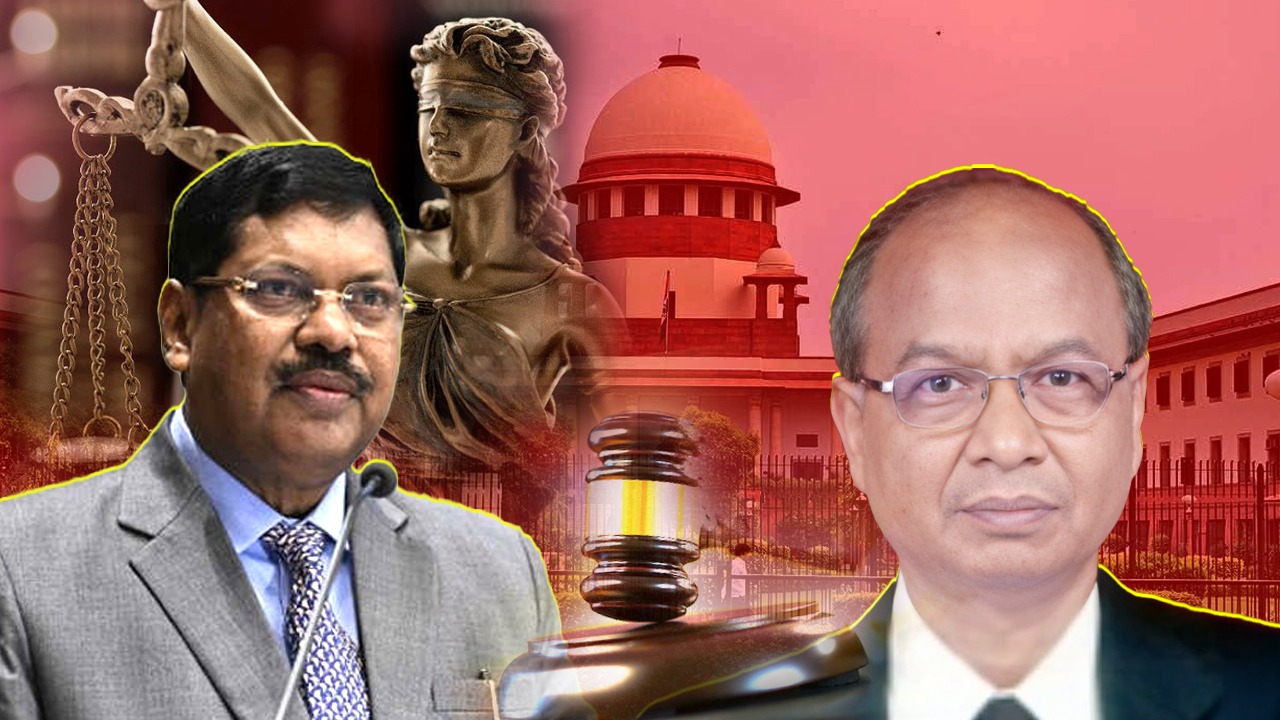 English
English

The shocking shoe-throwing at CJI Gavai has left the legal world stunned. Yet, the Supreme Court may not pursue contempt action. What prompted this rare show of patience, and how will it shape courtroom decorum?

SC Declines Contempt Action Against Lawyer Who Threw Shoe at CJI.
New Delhi: The Supreme Court on Monday refused to initiate contempt proceedings against advocate Rakesh Kishore, who hurled a shoe at Chief Justice of India (CJI) BR Gavai, observing that the court should not give “undue importance” to someone seeking publicity through such acts.
A bench of Justices Surya Kant and Joymalya Bagchi said the incident, though condemnable, did not warrant further legal action, noting that extending the matter would only amplify the behaviour of an individual “who does not deserve attention.”
Who is Justice Surya Kant set to be next Chief Justice of India
During the hearing, Justice Surya Kant remarked, “Such persons have no stake in the system. Giving undue importance to a person who does not deserve it… we will look at it with the same magnanimity that the CJI has shown.”
The bench emphasised that the court’s approach mirrored Chief Justice Gavai’s dignified response. Immediately after the October 6 incident, the CJI had instructed court officials to “just ignore” the act and continue proceedings without disruption.
“Shouting slogans in court and hurling shoes are, without doubt, acts of contempt,” Justice Kant noted, “but under the law, it is for the judge concerned to decide whether to proceed or not.”
The court was hearing a petition filed by the Supreme Court Bar Association (SCBA) seeking contempt action against the 71-year-old advocate. However, the bench made it clear that issuing a contempt notice would only prolong an episode that deserved to fade away.
“Issuing a contempt notice will give undue importance to the lawyer and increase the shelf life of the incident,” the bench observed. “The matter should be allowed to die its own natural death.”
The shoe-throwing incident occurred in open court during proceedings earlier this month. Despite the shocking nature of the act, CJI Gavai remained unshaken, instructing security personnel not to take any punitive action against Kishore and to maintain the decorum of the proceedings.
The Bar Council of India (BCI) swiftly suspended Kishore’s licence to practice law following the incident. Members of the legal fraternity, including senior advocates and bar associations, condemned the act, calling it an affront to the dignity of the judiciary.
While deciding against contempt proceedings, the Supreme Court indicated that it would explore laying down preventive guidelines to ensure similar disruptions do not occur in the future. The bench directed Solicitor General Tushar Mehta to gather details of comparable incidents in other courts to aid in formulating safeguards.
CJI Justice Gavai inaugurates Mandangad Court, fulfills Ambedkar’s vision of grassroots justice
Earlier this month, on October 16, the top court had cautioned that the right to free speech and expression must not come at the cost of others’ dignity, warning against the rise of “unregulated” expressions and attention-seeking behaviour, both inside and outside the courtroom.
The shoe-throwing episode, which drew widespread condemnation across legal and political circles, even prompted Prime Minister Narendra Modi to speak with the CJI after the incident.
Yet, true to the spirit of judicial composure, the Supreme Court on Monday chose restraint over retaliation. By refusing to entertain contempt proceedings, the bench underscored a larger message: sometimes, dignity lies in silence, and not every act of provocation deserves the weight of a court’s attention.
No related posts found.